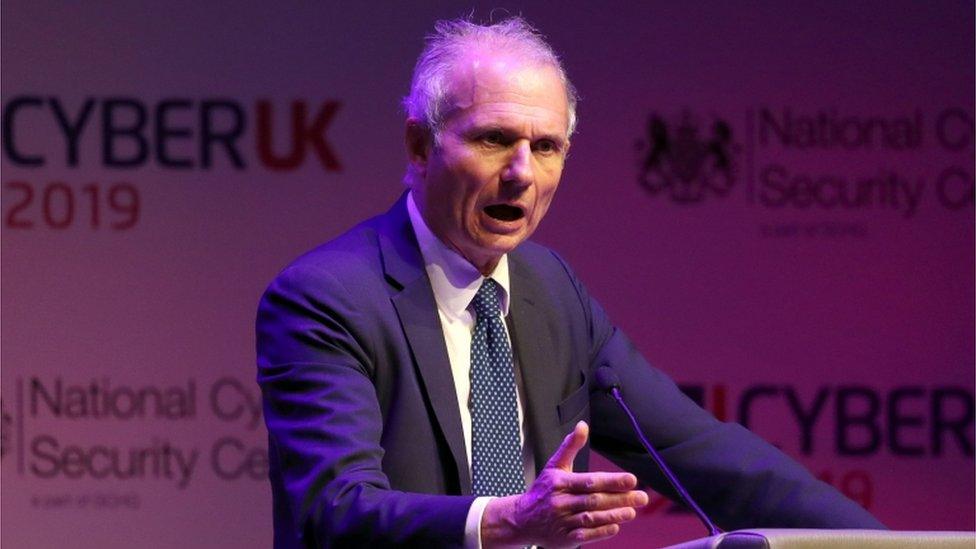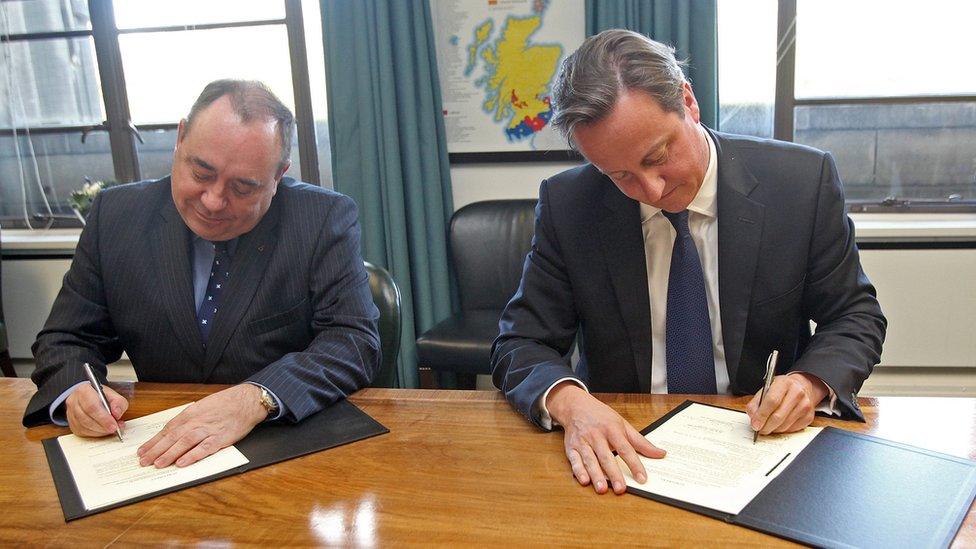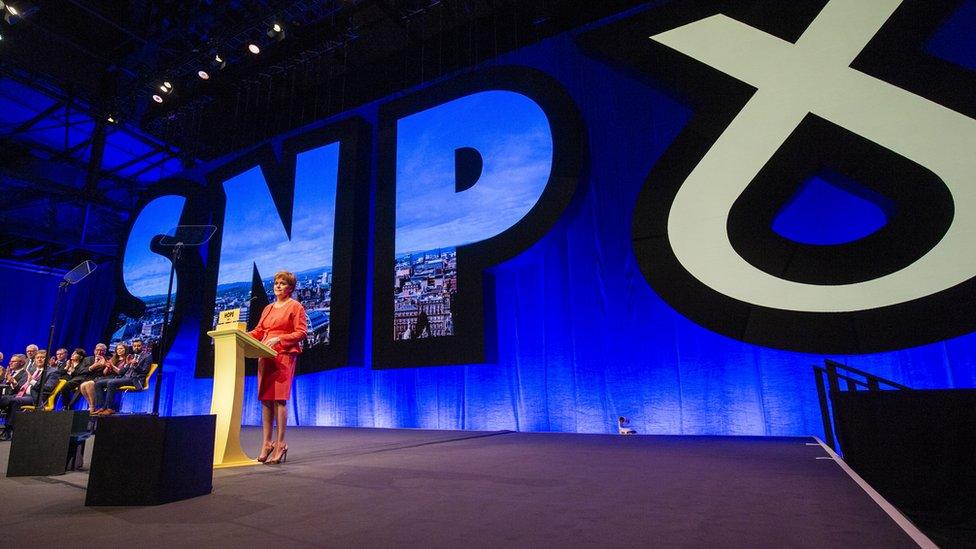Scottish independence: UK government 'will not grant indyref2 consent'
- Published
- comments

Mr Lidington is in Glasgow for a major cybersecurity conference
Theresa May's deputy has said the Scottish Parliament will not be given the power to hold an independence referendum by 2021.
Cabinet Office Minister David Lidington said there was "no evidence" of a surge in support for another vote.
And he said the referendum in 2014 had settled matters for a generation.
Nicola Sturgeon said on Wednesday she wants a referendum before the next Scottish Parliament election in 2021 if the UK leaves the EU.
But the first minister also indicated that Westminster's approval was needed to put the legal status of any vote "beyond doubt".
She has not yet made a fresh request to the UK government for this to happen, but told BBC Scotland that Mr Lidington was a member of a UK government that is "clinging to power by its fingertips" and has "zero authority or credibility".
Ms Sturgeon added: "I'm not going to spend too much time bothering about the diktats of a government that I expect will be out of office before too long."
And she said the UK government should have to answer "why they think it is acceptable to block a democratic vote that has a clear mandate in the Scottish Parliament and with the Scottish people".
Nicola Sturgeon says a second independence referendum will need a transfer of power from Westminster
Downing Street has repeatedly said it does not believe a second referendum should be held - and made clear after Ms Sturgeon's statement on Wednesday that its position has not changed.
When asked by BBC Scotland whether this meant the UK government was ruling out granting a Section 30 order - which formed the legal basis for the last referendum - before 2021, Mr Lidington replied: "Yes. We don't see the case for that.
"This was supposed to be settled for a generation in 2014 and we should stick to that."
He added that there was "no evidence since then that the appetite of the Scottish people to go through a referendum once again has surged up".
Mr Lidington, who was in Glasgow for a major cybersecurity conference, also said: "What I pick up whenever I come to Scotland is people saying we want our schools to improve, we want the problems in the hospitals sorted out, we want more jobs, higher living standards and start to get more business investment.
"The UK government wants to work with the Scottish government on those things".

First Minister Alex Salmond and Prime Minister David Cameron signed an agreement that paved the way for the 2014 referendum to be held
What did Ms Sturgeon say on Wednesday?
The first minister hopes a "framework Bill" - Scottish Parliament legislation setting the rules for any future referendum - will be in place by the end of this year.
In her long-awaited statement to MSPs on Wednesday afternoon, she said: "We do not need a transfer of power such as a Section 30 order to pass such a framework Bill, though we would need it to put beyond doubt or challenge our ability to apply the bill to an independence referendum."
The first minister also predicted: "If we are successful in further growing the support and the demand for independence, then no UK government will be able to stop the will of the people or stop that will being expressed."
She announced she wants cross-party talks with opposition leaders about Holyrood's powers, while a Citizens' Assembly will be set up to examine wider questions on Scotland's future.

The SNP is holding its party conference at the weekend
Ms Sturgeon is due to address the SNP conference in Edinburgh on Sunday, and has been facing calls from some within her party and the wider independence movement for a referendum to be held sooner rather than later - with some also questioning whether a Section 30 order is needed before a referendum is held.
Writing in the Scotsman newspaper, external after Ms Sturgeon's announcement, SNP veteran Kenny MacAskill - the former justice secretary - claimed that independence supporters who now expect an immediate referendum are "delusional".
He also accused the SNP of "fiddling while Rome burns" and argued that Ms Sturgeon's "heavily caveated" statement "confirmed what many have long thought, which is that she's not planning to try for independence before 2021".
'Fulfilling the mandate'
However, Finance Secretary Derek Mackay told the BBC's Good Morning Scotland programme that Ms Sturgeon was trying to keep the country's options open in the face of a Westminster government that does "not give a damn for the people of Scotland".
He also insisted the SNP leader was "fulfilling the mandate that if Scotland was taken out of the EU against Scotland's will that we would have a right to have a referendum".
Scotland rejected independence by 55% to 45% in the 2014 referendum - with opinion polls suggesting support for independence remains largely unchanged five years later.
Ms Sturgeon initially called for a second referendum after the Brexit vote in 2016, but put her plans on hold after the SNP lost 21 seats in the general election the following year.